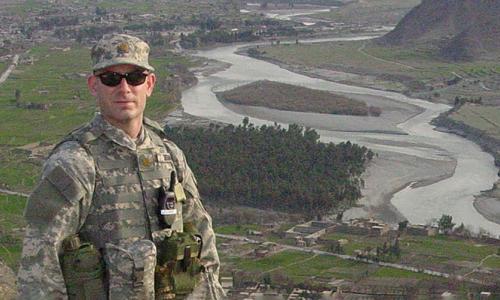Kevin Thomas Stories Title: Supply Chain Security Director at Olympus: My giving back is mentoring as many young African American men as possible Quote: “Part of my giving back to society is mentoring as many young African American men as possible.” content:
For nearly 30 years, Kevin J. Thomas, CFE, CFI, CBCP has built an extensive career in supply chain, with long tenures at many well-known brands. He recently joined the Olympus Corporation of the Americas, where he now serves as the Director and Head of Enterprise Physical Supply Chain Security.
Before blazing trails in this industry, he worked as a criminal investigator, even being awarded the 1997 Criminal Investigator of the Year in Albany, Georgia, with a 95% prosecution rate of all criminal cases brought in front of the district attorney. The skills learned in law enforcement helped to direct his path and have proven invaluable as a leader.
Thomas took some time from his schedule to chat with Ladders about working at Olympus, being a leader, and fighting for racial injustice:
What made you decide to pursue a career in security?
Kevin J. Thomas: I chose the security industry after working in the police-law enforcement field for approximately ten years. I wanted to leverage the cross-functional skills obtained in the areas of investigations, physical security, and other skills around protecting people/assets.
What are the trends you see within your industry currently?
Thomas: In terms of current trends I see within the industry, I think first and foremost, security professionals are today expected to be more than just company police. The climate is requiring practitioners to be risk mitigators who add value to the evolving global workplace.
How would you describe your company culture at Olympus?
The Olympus culture from my experience is one that exemplifies collaboration and inclusiveness. The executive leadership team’s ‘open-door’ policy is one of the most notable signals of this culture.
During the past approximately 2.5 years that I’ve been a member of upper management, executive leaders have always been approachable, receptive, and responsive to my concerns and/or ideas related to protecting the organizational assets and keeping our people a top priority. The culture of inclusiveness at Olympus isn’t just about saying the right things, but about taking meaningful action to create a culture of inclusion for people of all communities.
What can a job applicant do to catch your attention? What stands out the most to you?
I believe professional skill set and experience are extremely important; most job responsibilities can be taught and/or addressed through training. Some more difficult-to-teach attributes that stand out for me are a candidate’s ability to display enthusiasm/interpersonal skills, a big-picture viewpoint, analytical thought-processes, and cross-functional experience that comes from working in a team.
What’s the most challenging part of being a leader/manager? What’s the best part?
The most challenging part of being a leader for myself is managing work-life balance. Members often tell me of my team that I need to do a better job shutting it off during weekends and/or non-core work hours. Thankfully, I work for a company that has rolled out encouragement to stay off email on the weekends as they care about the balance for their employees.
The most gratifying part of being a leader/manager is in witnessing direct reports excel and/or achieve goals, whether along the lines of professional development, academic credentials, or overcoming performance challenges.
What’s your advice for a professional considering an MBA?
My pursuit of an MBA was predicated upon wanting to be more well-rounded from a professional standpoint. Following my 10-year law-enforcement career, I wanted to create a diverse professional portfolio that wasn’t merely inclusive of criminal justice. It also spoke to my ability to understand accounting, operations, and human resource management as these apply to the corporate environment.
What are some of the challenges you have faced as a POC in this industry?
I’ve held multiple roles within corporate America at various levels, and I think for me, the most glaring obstacles as a POC have been managing perceptions regarding the African American male. As a part of this group, I’ve seen that society often doesn’t paint the most positive and/or optimistic picture.
However, I’ve tirelessly attempted to show, by way of my professional and personal accomplishments, that members of this category are the type of employee every organization needs. Part of my giving back to society is mentoring as many young African American men as possible and demonstrating how I’ve been able to overcome society’s often unfair characterization.
How do you feel about the current climate in America right now in regards to race? Is it changing your work culture?
Thomas: My perspective of today’s current climate within the US is simply ‘concerned.’ I grew up as a child/teenager post the 1960s era of segregation; I would have thought after overcoming so many racial inequalities, the country would not be dealing with such continued difficulty.
An increased emphasis on diversity and inclusion at Olympus will help give our POC the support they need, as well as provide the company at large with better tools for addressing issues like unconscious bias, understanding race and racism, and the problems our different communities face. I can only hope and pray that what we are witnessing leads to a better tomorrow for generations to come.




